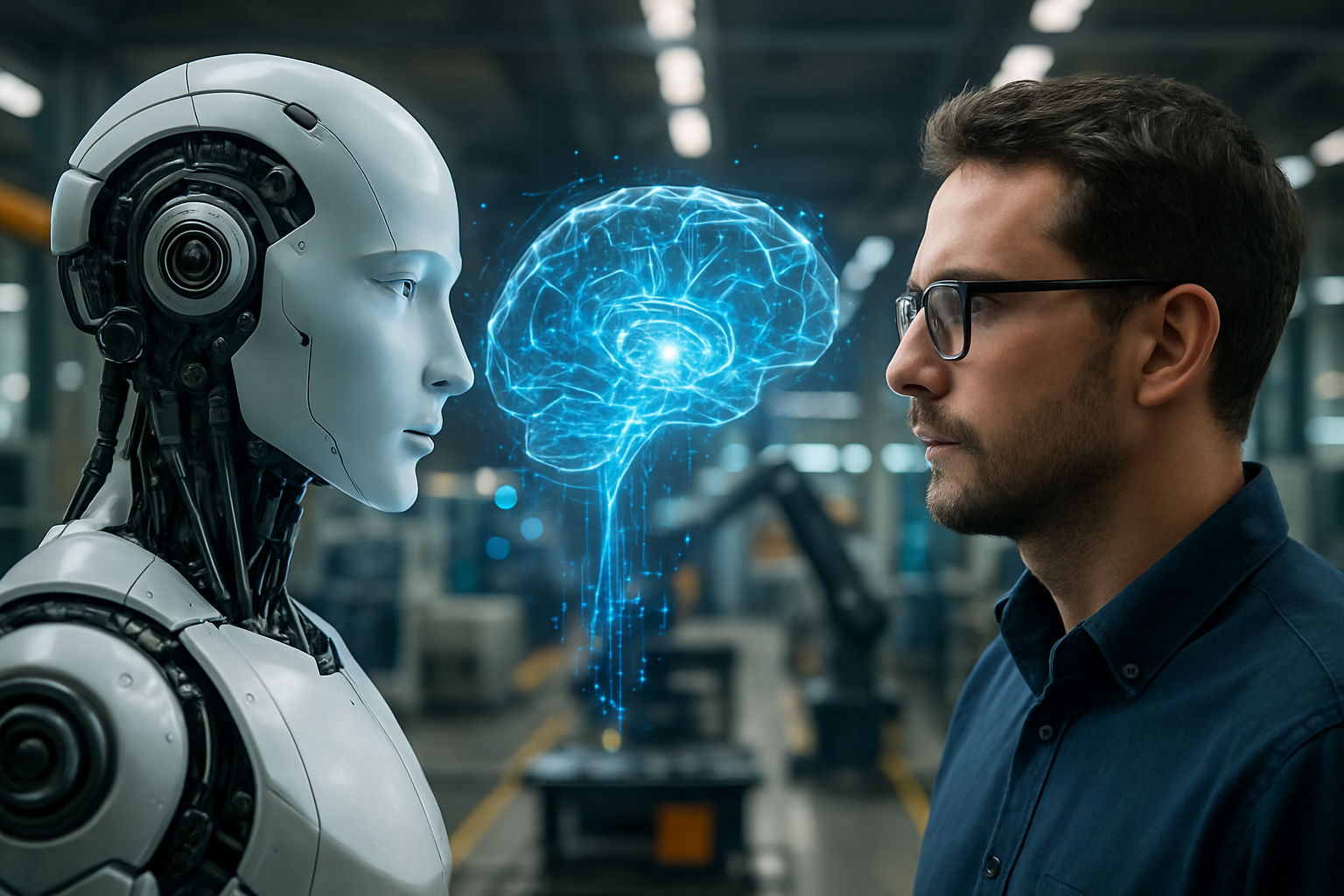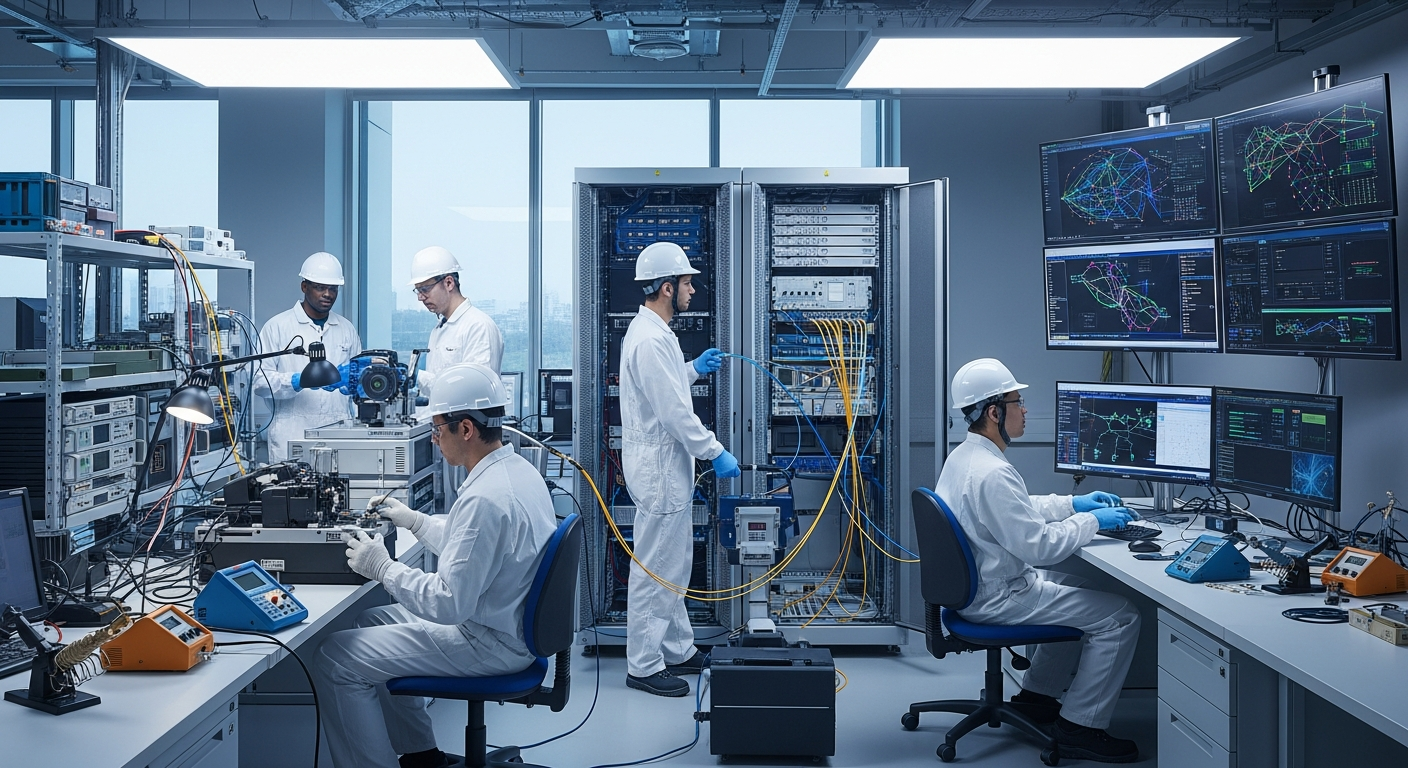Cognitive Manufacturing: Reshaping Industrial Intelligence
Cognitive manufacturing is revolutionizing the industrial landscape, merging advanced artificial intelligence with traditional production processes. This fusion of cognitive computing and manufacturing creates intelligent, self-optimizing systems that learn, adapt, and evolve. As industries grapple with increasing complexity and demand for customization, cognitive manufacturing offers a paradigm shift in operational efficiency, quality control, and innovation.

The foundations of cognitive manufacturing lie in the convergence of several cutting-edge technologies. Advanced sensors and IoT devices collect vast amounts of data from every aspect of the production process. This data is then processed by sophisticated AI algorithms that can identify patterns, anomalies, and opportunities for improvement that would be invisible to human operators. The result is a manufacturing environment that doesn’t just execute predefined tasks but actively learns and evolves to meet changing demands and conditions.
Enhanced Decision-Making and Predictive Capabilities
One of the most significant benefits of cognitive manufacturing is its ability to enhance decision-making at all levels of the production process. By analyzing historical data, current conditions, and future projections, cognitive systems can provide operators and managers with actionable insights in real-time. This capability extends from the shop floor, where AI can suggest optimal machine settings for a particular product, to the boardroom, where executives can make strategic decisions based on comprehensive, data-driven forecasts.
Predictive maintenance is a prime example of cognitive manufacturing’s transformative potential. Traditional maintenance schedules are often based on fixed intervals or reactive responses to breakdowns. In contrast, cognitive systems can predict when a machine is likely to fail based on subtle changes in performance data. This allows maintenance to be performed precisely when needed, minimizing downtime and extending equipment life.
Quality Control and Defect Reduction
Cognitive manufacturing is revolutionizing quality control processes, moving beyond traditional statistical sampling to 100% inspection with unprecedented accuracy. AI-powered vision systems can detect defects that would be invisible to the human eye, while machine learning algorithms can identify the root causes of quality issues by analyzing production data across multiple variables.
Moreover, cognitive systems can learn from each defect detected, continuously refining their ability to prevent future issues. This proactive approach to quality management not only reduces waste and rework but also enhances customer satisfaction and brand reputation. As products become increasingly complex and tolerances tighter, cognitive quality control is becoming a competitive necessity in many industries.
Customization and Flexible Production
In an era where consumers increasingly demand personalized products, cognitive manufacturing offers a solution to the challenge of mass customization. Traditional production lines, designed for high-volume, standardized products, struggle with the variability inherent in customized orders. Cognitive systems, however, can dynamically adjust production parameters to accommodate a wide range of product variations without sacrificing efficiency.
This flexibility extends beyond just product specifications. Cognitive manufacturing systems can optimize production schedules in real-time, balancing factors such as order priority, material availability, and equipment capacity. This agility allows manufacturers to respond quickly to market changes, capitalize on emerging opportunities, and maintain profitability even in volatile conditions.
Challenges and Implementation Considerations
While the potential of cognitive manufacturing is immense, its implementation comes with significant challenges. The most obvious is the substantial investment required in both technology and talent. Beyond the cost of sensors, software, and computing infrastructure, companies must also cultivate a workforce capable of designing, implementing, and maintaining these complex systems.
Data security and privacy are also major concerns, as cognitive manufacturing systems rely on vast amounts of potentially sensitive information. Ensuring the integrity and confidentiality of this data is crucial, particularly in industries with strict regulatory requirements.
Finally, there’s the human factor to consider. The transition to cognitive manufacturing often requires a cultural shift within organizations, as employees at all levels must learn to trust and collaborate with AI systems. This can be particularly challenging in industries with long-standing traditional practices.
Key Strategies for Cognitive Manufacturing Success
• Conduct a comprehensive assessment of your current manufacturing processes to identify areas where cognitive technologies can have the most significant impact.
• Invest in robust data infrastructure, ensuring that you have the capacity to collect, store, and process the vast amounts of data required for cognitive systems.
• Prioritize cybersecurity from the outset, implementing strong protections for both data and physical systems.
• Develop a talent strategy that includes both hiring new experts and upskilling your existing workforce.
• Start with pilot projects to demonstrate value and build organizational buy-in before scaling to full implementation.
• Foster a culture of continuous learning and adaptation, encouraging employees to view AI as a collaborative tool rather than a threat.
As we look to the future, cognitive manufacturing stands poised to redefine the boundaries of industrial productivity and innovation. By creating self-optimizing, adaptive production environments, it offers a path to unprecedented efficiency, quality, and customization. While the challenges of implementation are significant, the potential rewards make cognitive manufacturing a critical consideration for any forward-thinking industrial enterprise. As this technology continues to evolve, it will undoubtedly play a central role in shaping the factories of tomorrow.






